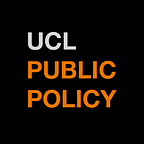Greater support for underrepresented groups is vital in overcoming barriers to academic-policy engagement
By Audrey Tan and Dr Olivia Stevenson
In a year that has accelerated disadvantage, piecemeal approaches to tackling inequalities are no longer sufficient. Universities have a vital role to play in making academic-policy engagement more inclusive. To get us started, here we review some of the progress so far and provide suggestions for ways to enact structural and cultural changes so that the evidence upon which the UK makes its decisions is truly representative of the population it serves.
Within Higher Education, the number of female professors is on the rise, increasing by 1,200 in the five years since 2014–15, compared to an increase of just 600 men in the same period. The reasons underpinning this increase are not yet clear, but one explanation is that initiatives such as the Athena SWAN awards are beginning to have an effect.
Like Higher Education, Parliament has also worked to increase diversity and inclusion in scrutiny, emphasising the promotion of mixed witness panels to bring about gender parity. Additionally, investments in training by the Parliamentary Office for Science and Technology (POST) are also supporting women researchers to increase their engagement with Parliament’s programmes.
While these strategies and activities are to be applauded, data on other under-represented groups such as race, disability and LGBTQ is limited, which beg the questions: what is the picture of academic-policy engagement in the UK? what does the current state of engagement reveal about the workings of privilege and its perpetuation? what are the barriers to diversity and inclusion?
Greater diversity amongst those who hold positions of power, who can also act as role models, are crucial for the system of academic-policy engagement to change, otherwise the lack of incentive and motivation to change will persist. The latest figures highlight that representation of MPs is beginning to reflect the population — 13.8% of the UK population is from a minority ethnic background and currently 10% (65 out of 650) of MPs are from minority ethnic backgrounds. However, it is concerning that none of the 20 Parliamentary Select Committees are chaired by someone from a minority ethnic group.
Similarly, the 2010 report to the Government Equalities Office (GEO) found that the barriers to participation in public and political life for lesbian, gay, bisexual and transgender people were multiple and ranged from a lack of awareness of how to get involved to socio-economic status. In response, the GEO published their 2018 LGBT Action Plan and the Government led on the largest national survey of LGBT people in the world to date to gather information about the experiences of LGBT people in the UK.
Barriers to academic-policy engagement also play out for those with disabilities, especially for women with disabilities where barriers are compounded. The COVID-19 pandemic has done little to ensure that decision making is accessible. For example, while press conferences and official statements from First Ministers of the devolved nations have featured a sign language interpreter, Downing Street and the Prime Minister’s addresses have not. The empowerment of persons with disabilities to undertake academic-policy engagement requires all of us to incorporate technical and administrative best practice processes that enable accessibility. The parliamentary internships for people with disabilities is a good example of inclusive action, but more is needed at scale.
What can we do to achieve equality and diversity in academic policy-engagement?
Challenges related to gender, ethnicity, disability and sexual orientation in academic-policy engagement do not exist in isolation; they intersect and are part of wider, structural social inequalities. Without understanding what the baseline data for under-represented groups is, we cannot truly diagnose the issue — nor create approaches to address them in any meaningful way.
The Cabinet Office’s Summer Diversity Internship Programme (SDIP) provides people from under-represented backgrounds with opportunities to explore careers in the Civil Service. More sector initiatives such as the SDIP are needed at the system-level to truly see a more diverse and inclusive approach to academic-policy engagement. As well as collecting and sharing data insights, policy brokerage and impact functions should take a proactive EDI approach to their work by using diversity quotas, ensuring chairs and participants are diverse and making events accessible.
Providing mentoring and support for a diverse range of researchers to build engagement skills is key. So too is ensuring that all parties involved with academic-policy engagement adopt standards of accessibility and inclusivity across content and delivery. Providing greater mentoring opportunities for under-represented groups would assist in building capacity and skills in navigating the public policy ecosystem. Continuing to increase the availability of existing training, such as POST’s ‘Parliament for Researchers’ series will also enable a broader audience to benefit.
Lastly, the responsibility for change should not be placed on people from under-represented groups. It is up to those who hold the ‘power’ to advocate for meaningful and inclusive change. Structural changes set out in strategic documents (i.e. at least 40% of discretionary witnesses should be female) are needed, but so are collaborations between the worlds of policy, academia and funders. We need system-wide commitment if we are to dismantle barriers and actively support greater diversity in academic-policy engagement.
_____________________________________________________________
About the authors
Audrey Tan is a Public Policy Engagement Facilitator for UCL Public Policy.
Dr Olivia Stevenson is Director of UCL Public Policy.
